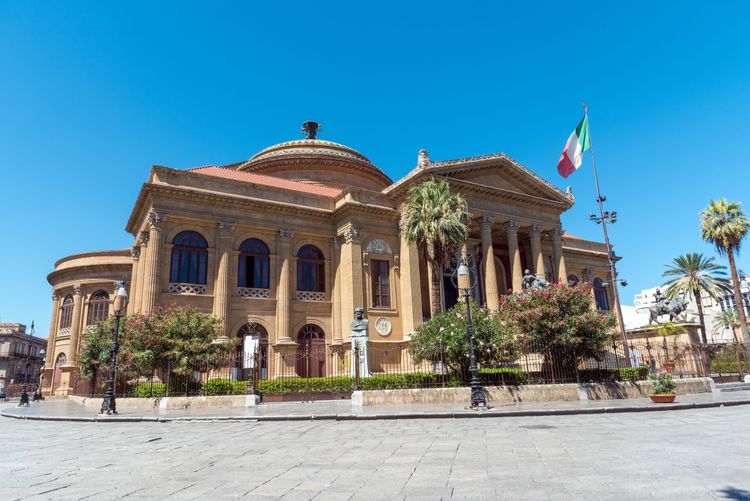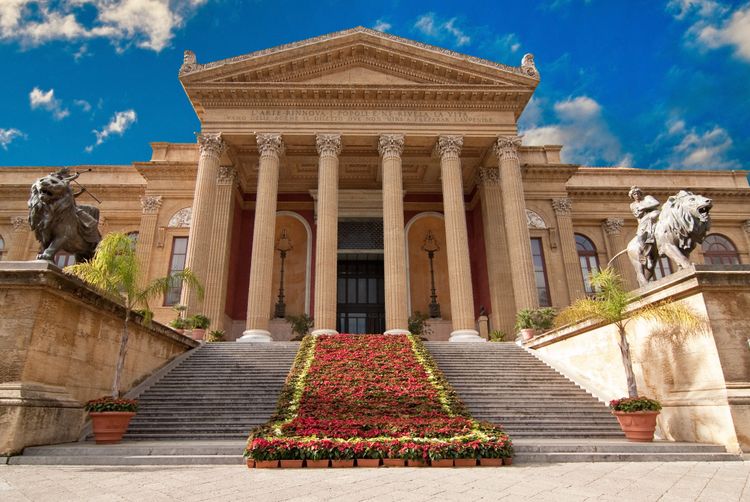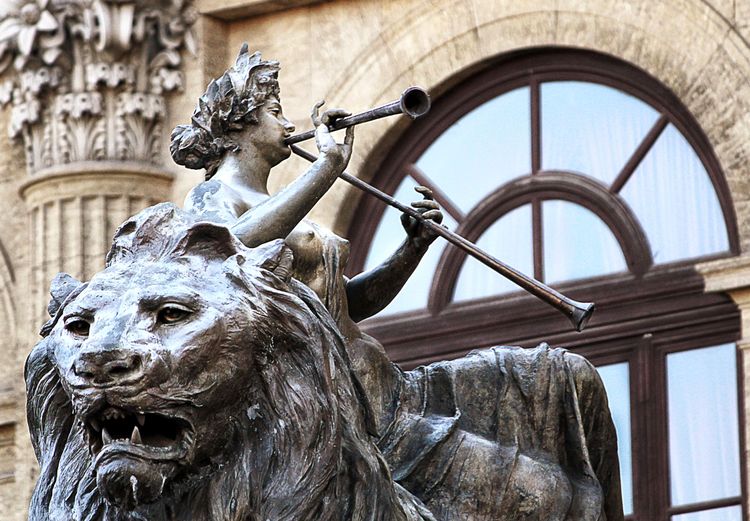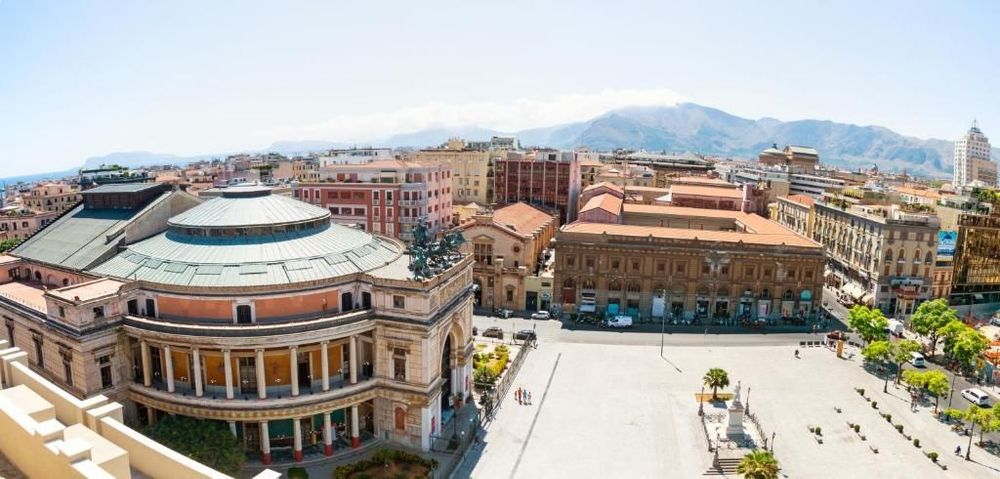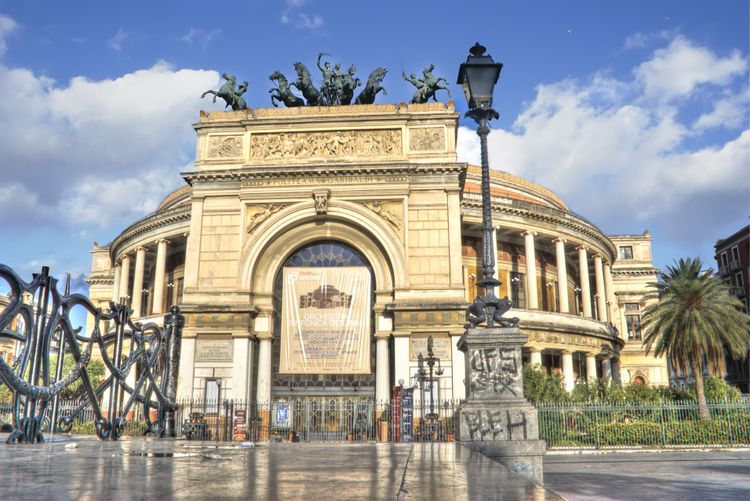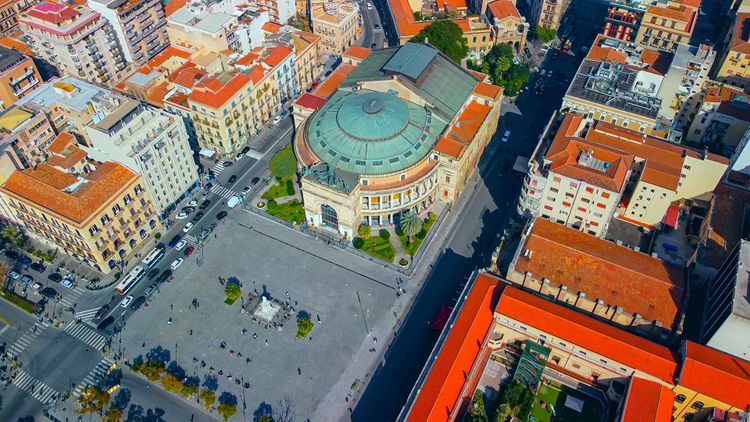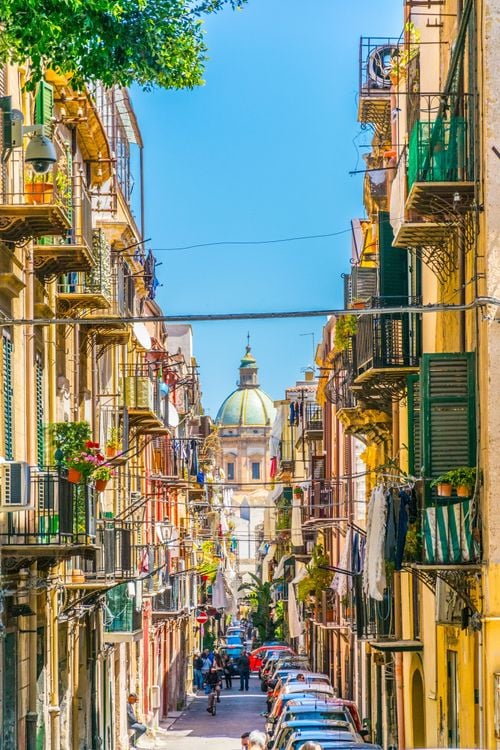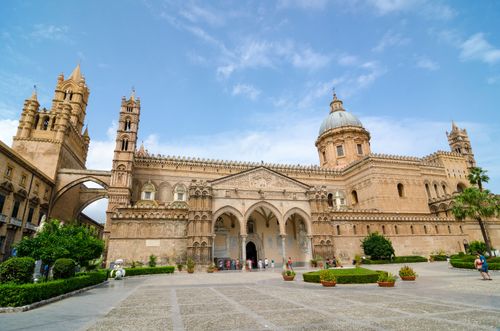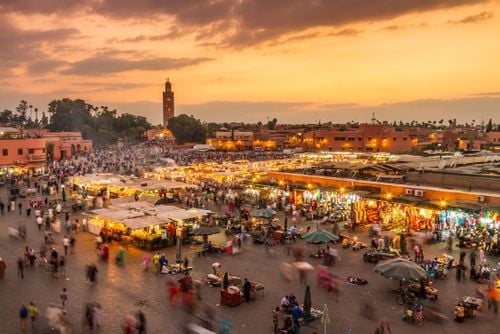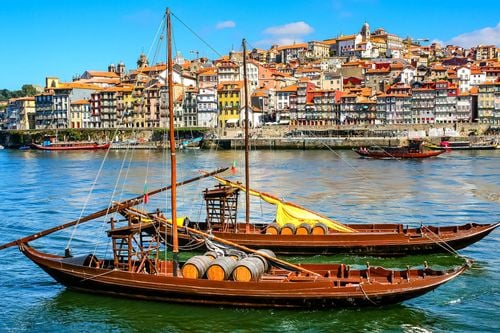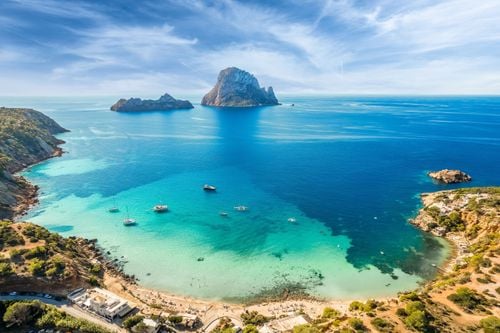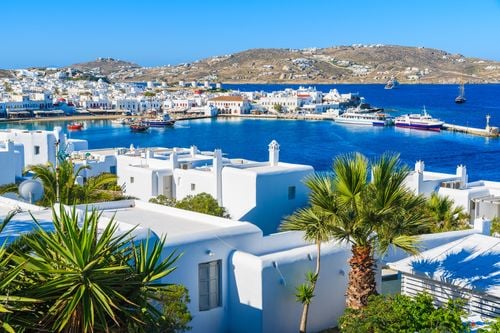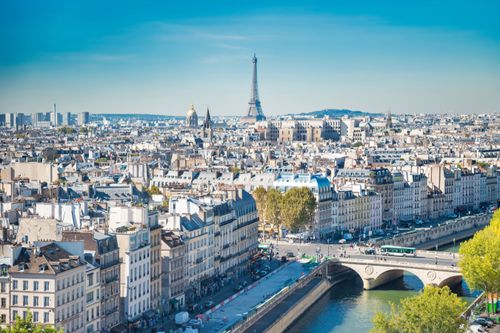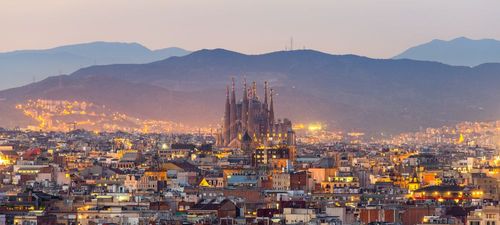Palermo has a number of theatres. The most important are the Teatro Massimo Vittorio Emanuele, better known as the Teatro Massimo, and the Teatro Politeama Garibaldi.
Today, the Teatro Massimo is the largest opera house in Italy and the third largest in Europe after the Opéra National de Paris and the Vienna Staatsoper. It was built in response to the need for a new theatre. A competition was therefore launched by the mayor in 1864 to find an architect, not necessarily Italian, to build the theatre, although the need had existed for years.
